
Welcome to Martha’s Monthly, November edition! I can’t believe we are in December and the end of the year is only a few weeks away. I know we all technically wait the same amount of time for December to come around. But I feel it’s even longer, because December is my birthday month!! As a child I used to hate having a birthday the week before Christmas, but as an adult I am able to see the perks. People are in a high spirits and everywhere glitters with decorations and fairy lights - you can pretend its all for you.
November was a varied reading month, but not just because of the books! My chronic illness flared up a lot, so when I reflect back to what I read in November it feels a bit disjointed. When I’m in pain, it definitely impacts how I read. But that's just the way it goes sometimes! Despite this, I really value the escapism reading can bring when I feel unwell. Half of these book covers also seem to be pink. That was not planned. Frankly, the lack of colour diversity in the monthly picture is really irking me. Whoever said don’t judge a book by its cover clearly didn’t run a monthly reads newsletter where they collectively photograph their books!
Anyway, without further ado, here are my November reads.
For those who are new, buy, borrow, bust is my recommendation key. Buy = I immensely enjoyed and heavily recommend. Borrow = I think this book is still worth a read and I’m glad I read it. Bust = I wouldn’t recommend this book from my own reading experience.
‘The House of Doors’ by Tan Twan Eng. Longlisted for The Booker Prize 2023, ‘The House of Doors’ is a story of love, truth and betrayal in 1921 British Empire ruled Malaysia. We meet Robert and Lesley Hamlyn who live in Cassowary House on the Straits Settlement of Penang. ‘Willie’ Somerset Maugham, a famed writer and old friend of Roberts, comes to visit with his secretary Gerald. Their visit threatens a rift into Lesley and Robert’s lives. Maugham has long hid his homosexuality in an unhappy and expensive marriage of convenience in London. But when something drastic happens to Maugham and he loses his savings, he arrives at Cassowary House in desperate need of a subject for his next book. The marriage between Robert and Lesley is not all as it seems, and Maugham is suspicious of Lesley’s past connection to the Chinese Revolutionary Dr Sun Yat Sen. As the friendship between Lesley and Maugham deepens, Lesley confides in him about her life and Maugham discovers a far more salacious tale than he imagined; a story worthy of fiction.
‘The House of Doors’ was inspired by ‘The Letter’ by Somerset Maugham, a story that fictionalised a murder in British Malaya in the early 20th century. This murder was the real life case of Ethel Proudlock in 1911, an incident which scandalised the British Colonial Society in Kuala Lumpur. ‘The House of Doors’ also pulls inspiration from political revolutionary Dr Sun Yat Sen and Chinese Revolutionary activities in Malaya in the 1910s. This is a book with numerous avenues of inspiration and influence. It is a story that traces aspects of race, gender, sexuality and power under empire. This multi-layered historical fiction is why I enjoy reading so much - you always learn something new. In this case I enjoyed learning about the Qing Dynasty, something I do not know very much about.
This was a gentle, slow burn and mysterious historical novel that I enjoyed reading. It is not a story of dramatic and immediate reveals, but instead gradual uncovering. It is a restrained look at a society working to keep up appearances. As Lesley reveals more and more about her past, we are able to begin to speculate what her secrets are before they are put to the page. This creates a wonderfully captivating atmosphere of curiosity and anticipation for the reader. Maugham is a very passive character in this novel; he is a vessel through which we get to listen to Lesley Hamlyn’s secrets from her past. The prose is highly decorated throughout the book, with sentences like;
‘That night, side by side, we drifted among the galaxies of sea-stars, while far, far above us the asterisks of light marked out the footnotes on the page of eternity’ (I mean, this is art?)
The story holds an underlying critique of expats living in colonised regions, such as Penang, although it is subtle and the story is told entirely through their eyes. However, it doesn’t offer as much of an overt critique on orientalism as I expected. The story also touches on the nature of homophobia at the time and explores the normalisation of gay men marrying to hide themselves, whatever the impact this has on their wives.
The blurb describes this book as ‘a drama of love and betrayal’. For a story so suffused with sex, violence and resentment, the novel operates at much more of a slow, low boil. I would argue this book is described as being a bit more dramatic than it actually is. It is instead a quiet historical novel, that at times has to labour to capture the passions that consume it’s characters' lives. I would call ‘The House of Doors’ a borrow. It was a different pace to the books I have been reading recently and for that I enjoyed it. It was also satisfying to have learnt all the characters' secrets by the end.
‘Call Me Cassandra’ by Marcial Gala. This tragic and magical trans coming-of-age story tells the tale of a young dreamer, born in the wrong body and time. Our protagonist, ten-year-old Rauli, lives in a hostile world. His1 family and community do not understand or appreciate his intelligence and sensitivity. Rauli loves to read Greek Myths, but in Cuba in the 1970s, novels and gods can be dangerous. Rauli is omniscient, and he knows three things to be true. First, that he was born in the wrong body. Second, that he will die, aged eighteen, as a soldier in the Cuban intervention in Angola. And third, that he is the reincarnation of the Trojan princess Cassandra. Cassandra is Rauli, born physiologically male, in post revolutionary Cuba. The prose moves between Rauli’s childhood and adolescence, the Angolan battlefield, the Cuban city of Cienfuegos, and the ancient city of Troy. ‘Call Me Cassandra’ tells a unique story of the search for identity amidst the backdrop of a collapse of Cuba’s utopian dreams.
This book sounds confusing, but I promise it isn’t. Structurally, this story could have been a minefield, with three distinctly different timelines to jump between, but the time shifting is effortless. The story suffuses a bitter war tale, a trans coming-of-age story, and a fragmenting family. We follow the impact of communism suffocating the region and Rauli’s family, the systematic abuse and transphobia/homophobia within the military and the idea of destiny. The story explores whether we live in a world where the most innocent and vulnerable are set on a course toward an inevitable unhappy ending. Asking, do we have a hand in our own fate? Through incredibly lyrical and poetic prose, Gala intertwines mythology and historical fiction, threaded together with a very modern voice, to create a story that is unlike anything I have ever read before. ‘Call Me Cassandra’ is a creative and unique exploration of the trans experience. Despite the story moving between two disparate worlds, incredibly different from our world today, the experiences and perspective of Rauli felt incredibly raw and relevant. Rauli is searching for his identity amidst an incredibly volatile political landscape.
The historical context is vital to understanding this story. In 1970s Cuba, discontent was rife. Cuba saw the emergence of Communism, with Fidel Castro announcing a huge reform plan in 1959. Castro purged political opponents from administration and by the end of 1960, all opposition newspapers had been closed down and radio and TV were under state control. Anyone involved in the counter revolution had been purged and neighbourhood watch networks known as the ‘Committee for the Defence of the Revolution’ (CDR) were created. By 1965, the Communist Party had a central role in governing Cuba. This background of totalitarianism shadowing Rauli’s life helps us understand the environment Rauli is in at the time. It further contextualises the adversity he faced, along with the immense struggle for identity and self expression.
Today, referencing the Trojan priestess ‘Cassandra’ indicates a person whose accurate prophecies, generally of impending disaster, are not believed. I wish I knew more of the history before reading this, as I think it completely changes the experience of the book. Since researching it to write this review, I almost want to read it again, as the historical context brings in a whole other understanding to the story.
I really loved this book. Unlike anything I have ever read before, it was a real joy to get to know Rauli. There are some pretty tragic events that happen, but as a reader I felt so consistently enamoured with Rauli, his perspective on the world and his unwavering curiosity and understanding for who he is. He was an incredibly expressive protagonist. It is a gorgeous and painful story, one I was incredibly moved by. For me, ‘Call Me Cassandra’ is a definitive buy. It was such a refreshing and unique story, a spellbinding read.
‘Razorblade Tears’ by S.A Cosby. After reading ‘Blacktop Watseland’ earlier this year and absolutely loving it, I was incredibly keen to read more of Cosby’s work. ‘Razorblade Tears’ was my next forage into his oeuvre. Another thriller with themes of poverty, masculinity and race at its core, ‘Razorblade Tears’ tells a story of provocative revenge, redemption and grief. Our two protagonists are Ike Randolph, a black man, and Buddy Lee Jenkins, a white man. They are two ex-convicts living in Virginia. These two incredibly different men are connected by something they are both deeply ashamed of; their gay sons. Isiah and Derek are happily married and are both equally ashamed of their violent and homophobic fathers, with whom they do not have much of a relationship. One day Ike and Buddy Lee are informed their sons have both been brutally murdered. Ike and Buddy Lee, with little else in common other than a criminal past and love for their dead sons, band together in their desperate desire for revenge. They are convinced the murders were a hate crime, but the police are in no rush to solve the case. In this quest to do better for their sons in death than they did in life, these hardened ex-cons are confronted with their own prejudices.
I am so consistently blown away by Cosby’s flawless ability to write suspense and action, it can be such a hard genre to get right. ‘Razorblade Tears’ was slow to start, but very rapidly all came together creating an incredibly compelling thriller. Through the characters of Ike and Buddy Lee, Cosby creates a visceral and violent world of crime. As we move through the story, our protagonists are vehicles for shedding ignorance and stereotypes towards the LGBTQI community. As they explore their own definitions of masculinity, they are confronted with the relationships, or lack thereof, they had with their sons. Only in their sons' deaths do Ike and Buddy Lee start to understand and come to terms with the homophobia they intentionally and unintentionally projected towards them.
The story is quite graphic in terms of violence, but ultimately a tale of optimism for a more enlightened world, particularly towards LGBTQI people. Cosby’s writing has an incredibly cinematic quality, and is unlike any author I have ever read before. I said this in my ‘Blacktop Wasteland’ review, but Cosby’s ability to contrast such emotional and delicate themes with such raw and harsh violence creates an absorbing read. Ike and Buddy Lee are deeply flawed men, but you grow to love and root for them incredibly quickly. Their friendship is one of real vulnerability, which feels ironic as it contrasts so heavily to the lives they have led up until that point. Buddy Lee’s ignorance of racism in the South is challenged by Ike as they share their contrasting relationships with the police and experiences in the prison system.
Cosby touches on an array of very delicate themes, but all handled with great empathy and compassion. The interplay of poverty, masculinity and race felt flawless. At the end of the story I felt moved by the multi-layered experiences, challenges and prejudices these two men experienced, despite feeling initially apprehensive and cautious of these deeply flawed men. Every time I have finished a work of fiction by Cosby, I constantly feel I’ve gained more compassion and insight about experiences which are so far removed from my own. A revenge thriller, full of immense violence and tension, to evoke this kind of effect on a reader is extraordinary. My only criticism is how flat Cosby writes women. After reading two of his works now, I know he can write very effectively and highly developed male characters. I just wish the women in his stories were fleshed out a bit more, instead of just being reduced to mothers, wives or sexual conquests.
‘Razorblade Tears’ is a buy. Between the two I preferred ‘Blacktop Wasteland’ but that is not to say this is any less brilliant - I still highly recommend this book. I have ‘All The Sinners Bleed’ on paperback pre order, out February 2024. So stay tuned for the fact that in a few months, we will have even MORE Cosby to discuss! Fingers crossed for more nuanced female characters in this one.
‘So Distant From My Life’ by Monique Ilboudo. Jeanphi, a young man from a fictional West African city, Ouabany, has only one obsession; migration. He scrapes together money to take an illegal route across the Sahara, making it as far as Morocco, before being repatriated. Increasingly desperate and defeated, Jeanphi meets Elgep, a French widower, who is frustrated at the bureaucratic hurdles in Ouabany that are limiting his charitable endeavours. A window of opportunity opens for them both, but one that will also bring tragedy.
‘So Distant From My Life’ tells a story that we so rarely hear; one of what it is like to grow up amongst the NGO-isation of African countries, and the currents of shame that can divide communities and families. This story eloquently explores and critiques migration, giving commentary on borders and those who transgress them.
The story includes several poignant quotes on the experience of wanting to migrate and what this means:
‘I refuse to remain lying down where chance had birthed me’
‘Why are some people expatriates, while others migrate, emigrate or immigrate? Reading the various definitions just confused me further. The words had almost the same meaning.’
‘So Distant From My Life’ explores the aftermath of colonialism, corruption in government and excessive bureaucracy. Jeanphi’s dissatisfaction with his country is incredibly evident as he is unable to ignore the years of entrenched colonialism and bureaucracy that suggest he should leave Ouabany if he wants to lead a life of worth. Once he does leave, Jeanphi is faced with racism and stereotypes in a foreign land. Through this we are confronted with the never ending struggles of migrating - it being your only choice to survive, only to be despised wherever you end up, because of who you are. Through Jeanphi’s point of view you feel the disparity he experiences. It is a portrait of a man torn between commitments of place, family and internal impulse.
Despite the thought provoking nature of this book, I wanted more. It reads like a collection of vignettes and there is so much more detail I would have liked to have known. The story is said to critique the NGO-isation of Africa, but I expected something more overt. It instead feels like a search for identity. Jeanphi’s civil partnership decision with Elgep to gain residency in France needed to be explored with more depth and nuance. I understand the intention could be to represent the indignities many people are forced to suffer in order to migrate, giving up all personal freedoms in order to leave. But it didn’t feel quite right. We also never fully learn what Jeanphi wants, or what his life looks like once he migrates. In a narrative so heavily structured around the lengths he’ll go to in order to achieve that, it doesn’t quite fit together as well as it could.
For me, I wouldn’t recommend this book so I’d have to call it a bust. The commentary on exploitation and the lasting damage of colonialism was thought provoking. But the characterisation of Jeanphi felt limited and there was a significant missing depth of exploration.
‘Annihilation’ (Southern Reach 1) by Jeff VanderMeer. I read ‘Annihilation’ with
and her book club over at READ LIKE MAD. I almost never read books alongside others, so this was a welcomed change. ‘Annihilation’ is an incredibly gripping horror and sci-fi story of an expedition to ‘Area X’. Area X is an environmental disaster zone that has been cut off from the rest of the world for decades. Nature has largely reclaimed space from the last vestiges of human civilisation. Over the years, the Southern Reach, a secretive government agency, has sent eleven expeditions to investigate Area X. One expedition ended in mass suicide, another in a hail of gunfire, and the eleventh expedition returned as shadows of their former selves, and within weeks all died of cancer. Now, four women embark on the twelfth expedition into the unknown. Their mission is to map the terrain, record all observations of their surroundings and one another, and, above all, avoid being contaminated by Area X itself. They arrive expecting the unexpected, but they are still severely unprepared. As the expedition unfolds, the secrets that the four women are keeping from one another affect everything.This story was completely unnerving from start to finish. VanderMeer has a standout ability within his writing to make you feel deeply physically uncomfortable. I can say, without a doubt, that this was the most creepy and stressful reading experience I have ever had. There is something absurdly gothic about this book, and most of it is absolutely terrifying to read. We are never fully allowed to understand the reality of what is going on in Area X, and this is what makes it so unnerving. Neither you, the reader, or the scientists in the story, can trust the reality of what we are experiencing. This type of prose where you come to understand that you have to question everything you are reading is disturbing - the narrative is playing on you psychologically. This unsettling prose, along with the quivering fear of the scientists and the unknown of Area X, make ‘Annihilation’ an incredibly impressive gothic horror. VanderMeer denies us everything humans strive for; to seek and discover answers. It was really very clever.
I left reading this book with no answers, which is where the true horror of this novel lies. It was incredibly hard to put down, as I just wanted to find out more. ‘Annihilation’ is the first book in a trilogy, but I am apprehensive to read the others as this story was almost too good. This book is a buy. It was haunting and captivating, and really represents the power of words. I would recommend it to anyone who is interested in finding out how uncomfortable a book can make you feel.
‘I Cried to Dream Again: Trafficking, Murder and Deliverance’ - A Memoir by Sara Kruzan. In case you couldn’t already tell from my newsletter, I really love Memoirs. ‘I Cried to Dream Again’ tells the heartbreaking story of Sara Kruzan and the astonishing life she has led. As a survivor of childhood abuse and sex trafficking, Kruzan tells the honest, disturbing and ultimately empowering story of her journey from abuse to incarceration without parole, to finally gaining liberation. After being trafficked by ‘GG’ from the ages of eleven to sixteen, Kruzan murdered him. She is tried and convicted to life in prison without parole, as an adult, despite being only sixteen. Kruzan tells an extraordinary narrative of gruelling childhood trauma, systemic failure and how difficult it can be to achieve justice in a country that criminalises its citizens who need protection rather than punishment.
This memoir covers incredibly delicate and emotional themes, but it is an invaluable read. Even though Kruzan is trafficked as a child, and that is a key element to her story, this memoir is less an analysis on that experience and more a meditation on poverty, race, class and child abuse in America - it’s a story of fighting for justice. Kruzan’s story is of a child who has been monumentally let down by the American Welfare System, the Criminal Justice System and the Child Protection Services. Kruzan’s mother was a drug addict and abused her throughout her childhood. This interplay between extreme abuse, poverty and neglect undeniably played a role in GG being able to identify how vulnerable she was. This allowed him to promise the safety and attention she had been so horrifically denied as a child. Sara was a victim of circumstance. At only 11 years old, a child is not able to recognise the type of danger or abuse that GG represented.
What moved me the most was the unbelievable hope Kruzan maintained while incarcerated on a sentence of life without parole. She was told she would never walk free ever again, but she never gave up hope. To maintain this level of hope, despite the torrent of abuse and negligence she suffered at the hands of everyone who was supposed to protect her, is unbelievably remarkable. Kruzan is only human, so she had many moments of anguish and despair, but to survive what she has is incredibly moving. The lawyers and charities who believed in her and helped fight her case are incredibly touching. They recorded her testimony while she was inside, and published it online. The video gained so much attention and virality that they were able to rally for Sara’s release. In the memoir, Kruzan heartbreakingly said that that video interview was the first time anyone had asked for her side of the story, after having already spent over a decade in prison. The prosecutors never considered the extensive abuse Sara had suffered at the hands of this man and intended for her, a child, to die in prison.
Since coming out of prison, Kruzan has changed the law. ‘Sara’s Law’ is a law that will allow judges to give reduced sentences to child abuse survivors. Kruzan powerfully articulates how trying child sex trafficking victims as adults is a ‘human rights violation’. Kruzan is now part of an ongoing push to change laws around sentencing child victims of sex trafficking. I loved this memoir. It was full of immense bravery and honesty. ‘I Cried to Dream Again’ is a must buy. I recommend it immensely. It is an incredibly invaluable assessment of systemic failure and issues of justice in America, from someone who experienced it first hand. I hope Sara is now leading a life of peace and safety. I can’t even begin to imagine how hard it must have been for her to write this.
‘Havana Year Zero’ by Karla Suarez. By complete coincidence, I ended up reading another book set in Cuba in November. ‘Havana Year Zero’ is the story of the search for the inventor of the telephone. The story takes place in Cuba, 1993, known as the ‘Special Period’, where Cuba experienced widespread food insecurity and economic crisis following the collapse of the Soviet bloc. Havana is known to be at ‘Year Zero’, the lowest possible point. Julia, a maths lecturer, and her college Euclid, hatch a plot to find a legendary document that proves the telephone was actually invented in Havana, convinced it will rescue Cuba’s prestige. Julia sets out on an investigation to befriend two men who could help lead to the documents whereabouts; Angel the handsome artist and Leonardo the charming novelist. She must pick apart a tangled mystery of relationships, family legacies and the intricacies of how people cling onto meaning in a country at its lowest ebb.
I thought ‘Havana Year Zero’ would be a historical fiction story, and while there is a slight element of that, I couldn’t have been more wrong. It was instead a story of salacious deceiving and lies. ‘Havana Year Zero’ is a combination of a detective novel and a chick lit. It was funny and a bit silly. I welcomed reading something quite drastically different from my usual favourite genres (which are definitely not as lighthearted). The plot revolves around the real Antonio Meucci an Italian, who while based in Cuba in the 19th century, arguably invented the telephone some years before Alexander Graham Bell. While the skeleton of this story is the hunt for this mysterious document, it is fleshed out with what I can only describe as feeling like a Havana Love Island. A large part of the fun in reading this book is the multitudinous twists and turns the story takes, as it becomes clear this historic document lies amongst a complex web of deceit and sex that is gradually uncovered.
Despite its strengths, it did at times feel incredibly digressive from the initial plot line and Julia’s various relationships were quite frustrating. It was a book of two halves. One, an incredibly fascinating insight into life in Havana at this time and learning about Meucci’s life. And the other, a rambling story of Julia’s relationships with three pretty flawed men. That is not to say that Julia was not deeply flawed herself, because she was. And somehow this all came together in the same book. I would call this read a borrow.

‘Crooked Plow’ by Itamar Vieira Junior. And saving the best until last, ‘Crooked Plow’ was my favourite read of November. Deep in Brazil’s neglected Sertão2 two sisters, Bibiana and Belonísia, find an ancient knife beneath their grandmother’s bed, and mystified by its power, decide to taste it’s metal. Belonísia presses it against her tongue. Impatient to handle the knife herself, Bibiana pulls it away, slicing her sister's tongue. The shuddering violence that follows marks their lives and binds them together forever. Their mutual dependence is deepened by the harsh rural landscape to which they live in. The unrelenting realities of life in the north-eastern Sertão are enhanced by an abundance of supernatural presences. Their father, a renowned healer, has strong relationships with these spirits. The story is told from three different perspectives; Bibiana, Belonísia and Santa Rita, the shape-shifting spirit who has witnessed the suffering and hardship of the residents of Água Negra for generations.
This is a fascinating and gripping story about the lives of subsistence farmers in Brazil’s poorest region, three generations after the abolition of slavery, encompassing themes of family, spirituality and political struggle. ‘Crooked Plow’ sees the blend of magical and social realism, as the story starts tightly focused on the Chapéu Grande family, and gradually expands to take on broader questions of race and class. Vieira tells the story of hardship tenant farming, the persistent effects of racism, colonialism and the meaningless of freedom when people have nowhere to go. ‘Crooked Plow’ is a powerful and piercing book that brings attention to the history of Brazil’s Quilombola population who are descendants of enslaved Africans brought to work on Brazilian plantations until the abolition of slavery in 1888. The novel is a compelling reflection on the powerlessness of Brazil’s rural workers. That even today are living in conditions similar to their ancestors' enslavement.
I loved this book. The prose was captivating and compelling, and grew in strength with every page. I was engrossed from the beginning in the sisters and what was to come of their life after their interaction with the knife. The blend of historical research, magical and social realism and the oral storytelling traditions of ancient communities was really flawless. It is a story rooted in the voices, animals and plants of the Sertão and is beautifully written, managing to be sad and optimistic at the same time. ‘Crooked Plow’ is a brilliant meditation on the importance of place and community across generations, especially when the generations had absolutely no say in their destination. It is one of those books that since I’ve finished I’ve been having a bit of a book hangover. I would absolutely recommend ‘Crooked Plow’ and call it a buy. As well as being captivated by the story, I learnt a lot about a history of Brazil that I would have otherwise not come across before.
And that concludes my November Reads! My favourite reads of the month were ‘Crooked Plow’ and ‘I Cried to Dream Again’. Thank you so much, as always, for reading and engaging with Martha’s Monthly! I really appreciate all the support, and love talking to you all about books.
My first read of December is ‘Land of Snow and Ashes’ by Petra Rautiainen. Translated from Finnish, it is a detective story based in 1947 Finnish Lapland. Our protagonist, Inkeri, arrives to remote Enontekiö on a journalistic assignment, but her real motivation is more personal - this is where her husband was last seen before he disappeared during the war. I read the first two chapters last night and it immediately feels eerie and I’m hooked, I can tell there is something suspicious going on.
Let me know what you read and enjoyed in November, or which book (or books) from this newsletter you’d most like to read. I’d love to know! Equally, if you’ve read any of these books, let me know what you thought of them.
This will be my last newsletter of 2023 and I’ll be back in your inboxes in January 2024 (!!) with my December Reads. I have started collecting my favourite reads of 2023 for you all, which will also be coming to you in January. Currently, I have read 100 books so far in 2023, so there are A LOT of favourite books to come.
Whether you celebrate Christmas or not, I wish all my readers a safe and peaceful end to the year. I hope you are all able to find joy this December however you spend your time. Always remember there is great escapism to be found from the real world in books.
All my love, I am so grateful to you all.
Happy Reading! Love Martha
Catch up on my last two Monthly Reads here:
‘He’ is the pronoun used by the author for Rauli, so it is the pronoun I will use to refer to Rauli within this review
Sertão, sometimes known as Bahia Hinterland, are the marginalised rural communities in Brazil's northeast arid region who depend on natural resources to survive natural occurring drought




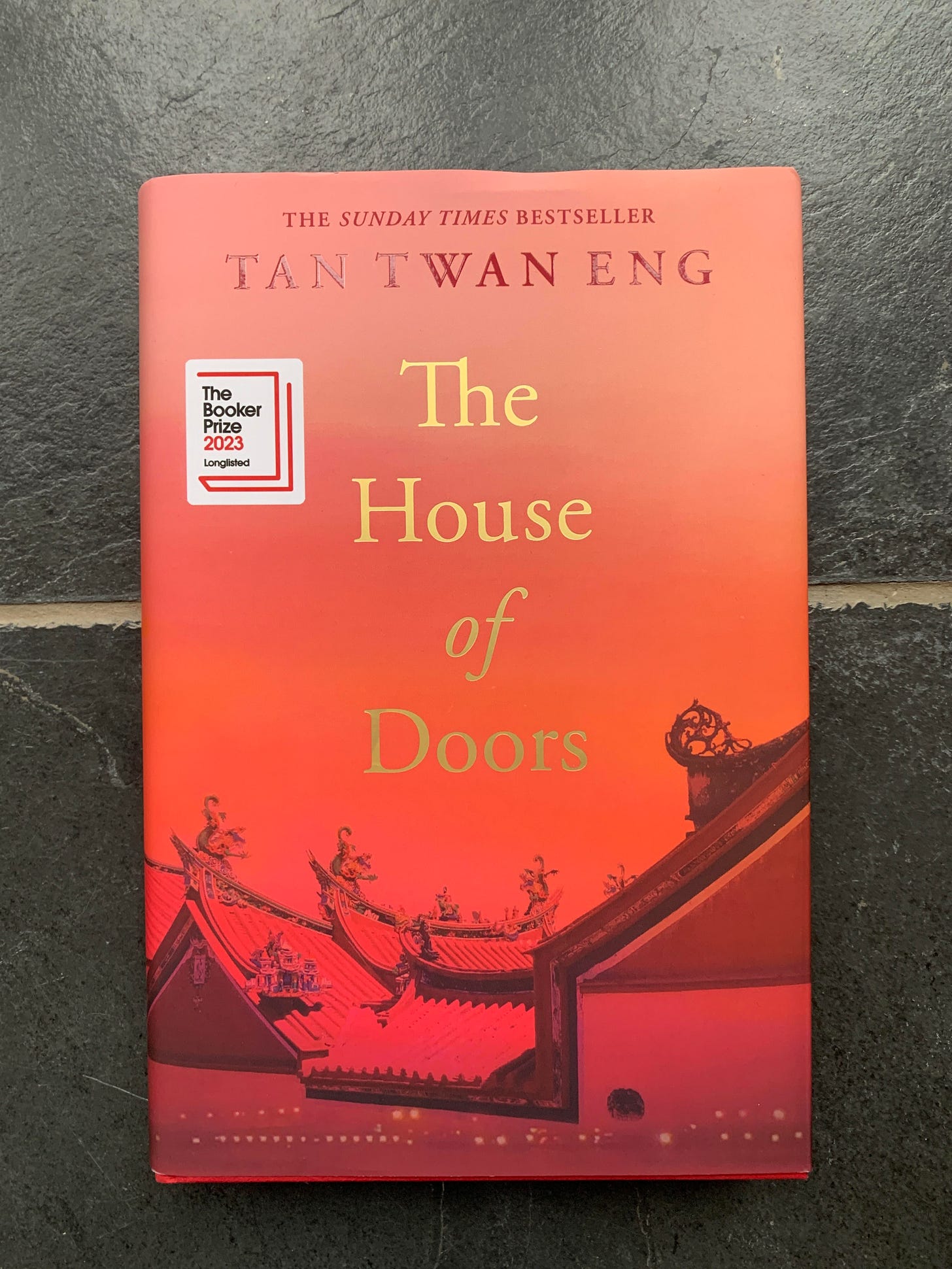
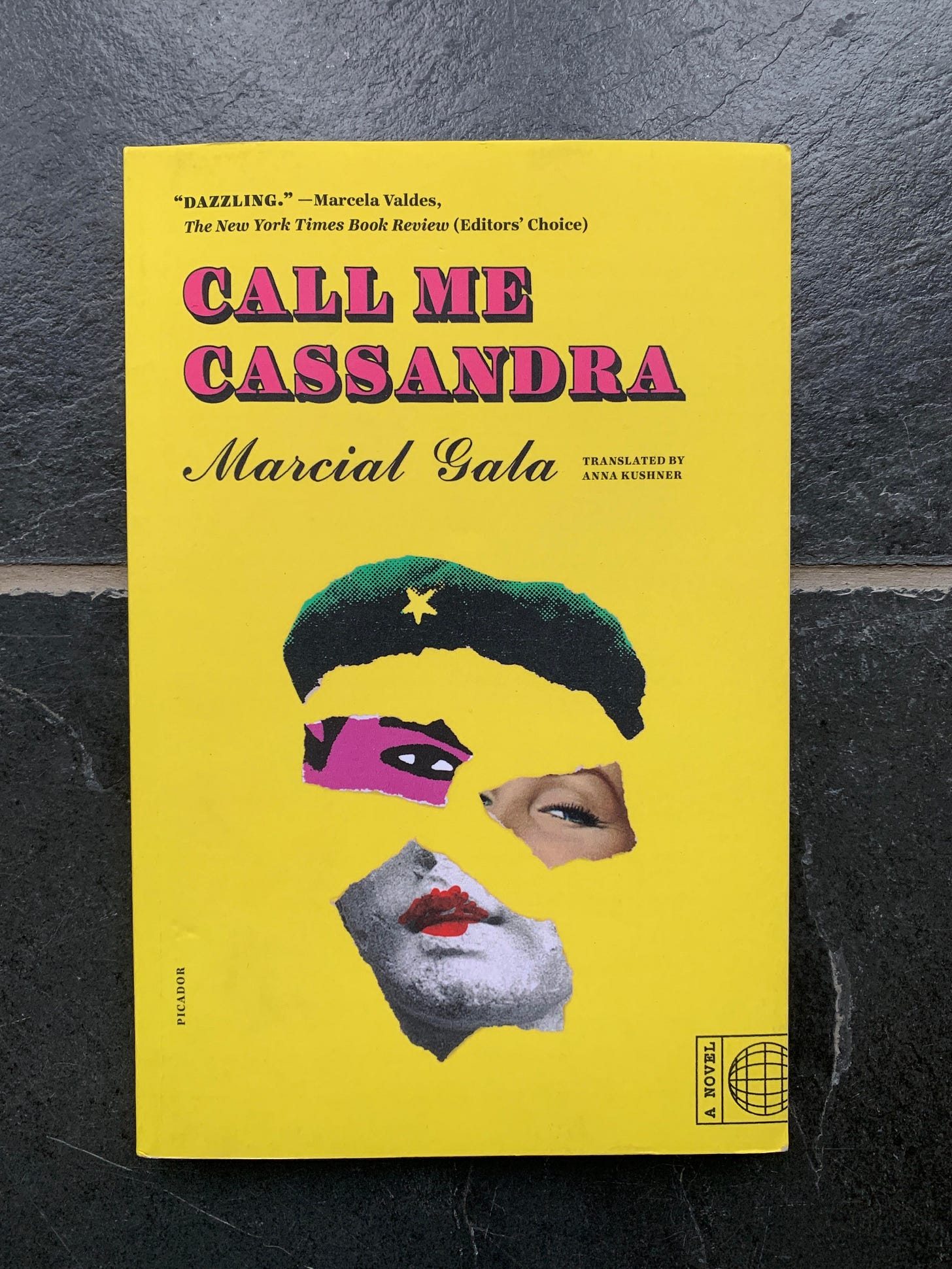
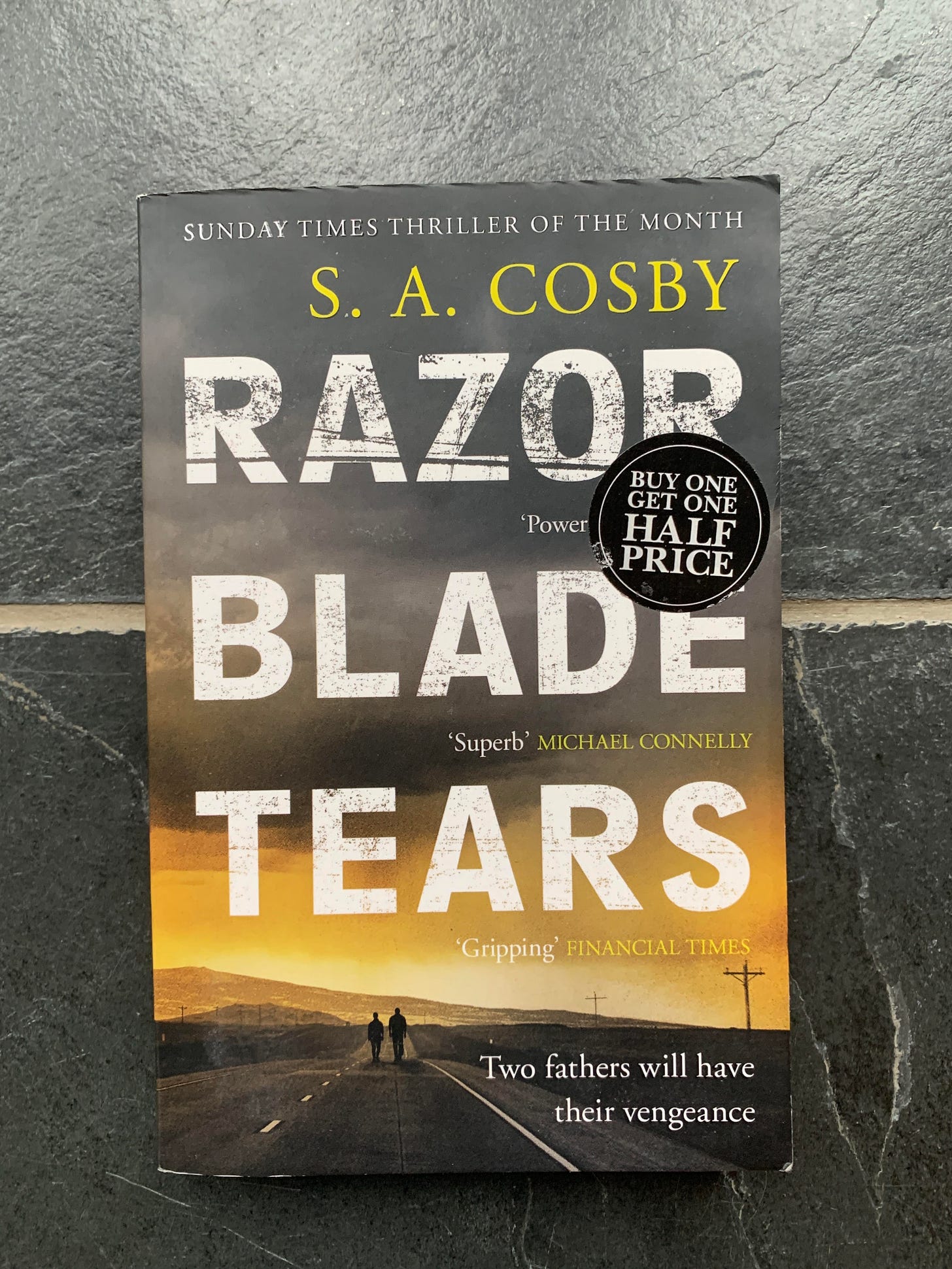
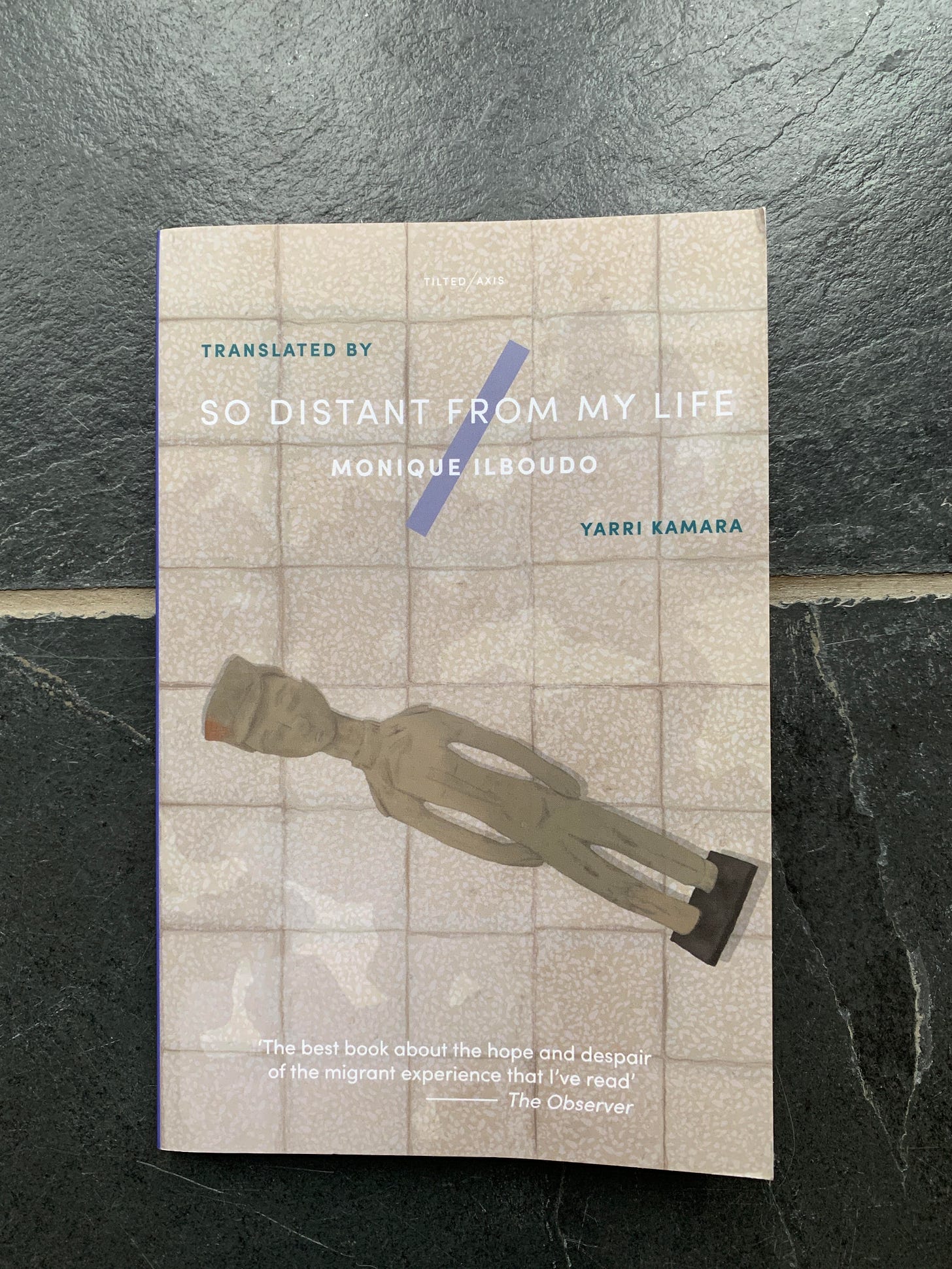
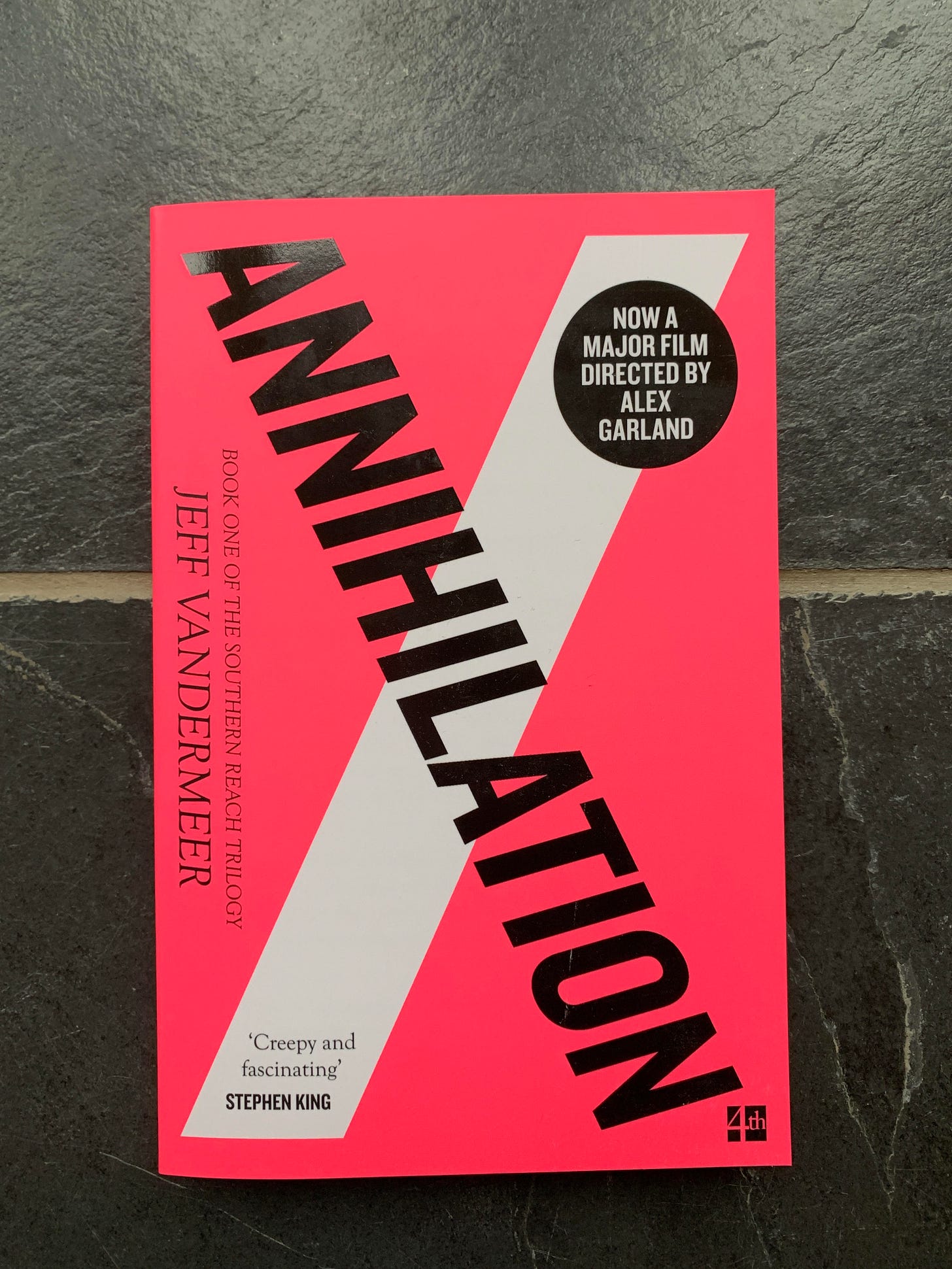

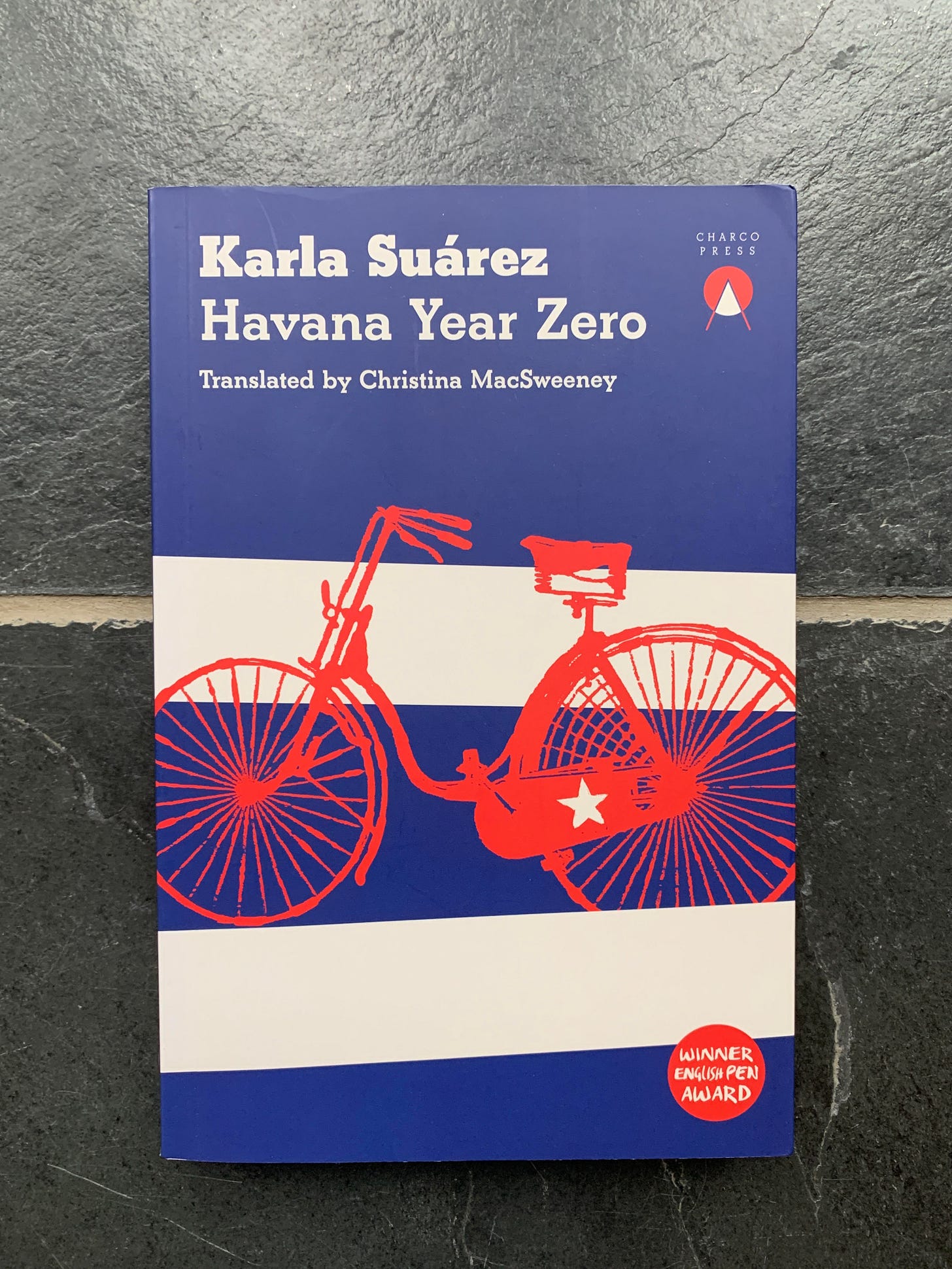
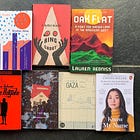

Ok I’m very intrigued by your review of Razorblade Tears because my reaction was different when I read it. I was so mad from the start that these men didn’t care for their gay sons until it was too late, and even then I didn’t understand WHY they started caring or what really changed their minds. I didn’t believe just their death would trigger it. I think that initial reaction tainted the rest of the book for me. Also I read a lot of Don Winslow who is so extremely detailed and psychological that I can’t help but compare. I’ve only heard others say good things about Razorblade tho so clearly it’s me. I will have to reconsider my bias.
Happy early birthday!!! The amount you’ve managed to read this month and year even through your illness is truly remarkable !! Can’t wait to see what your favorites were and what you have in store for next year 😃😃😃
Razorblade Tears was a fantastic read--totally agree on the joy of discovering Crosby. And for what it's worth, the whole Southern Reach trilogy is sort of a dazzling fever dream--just loved it.